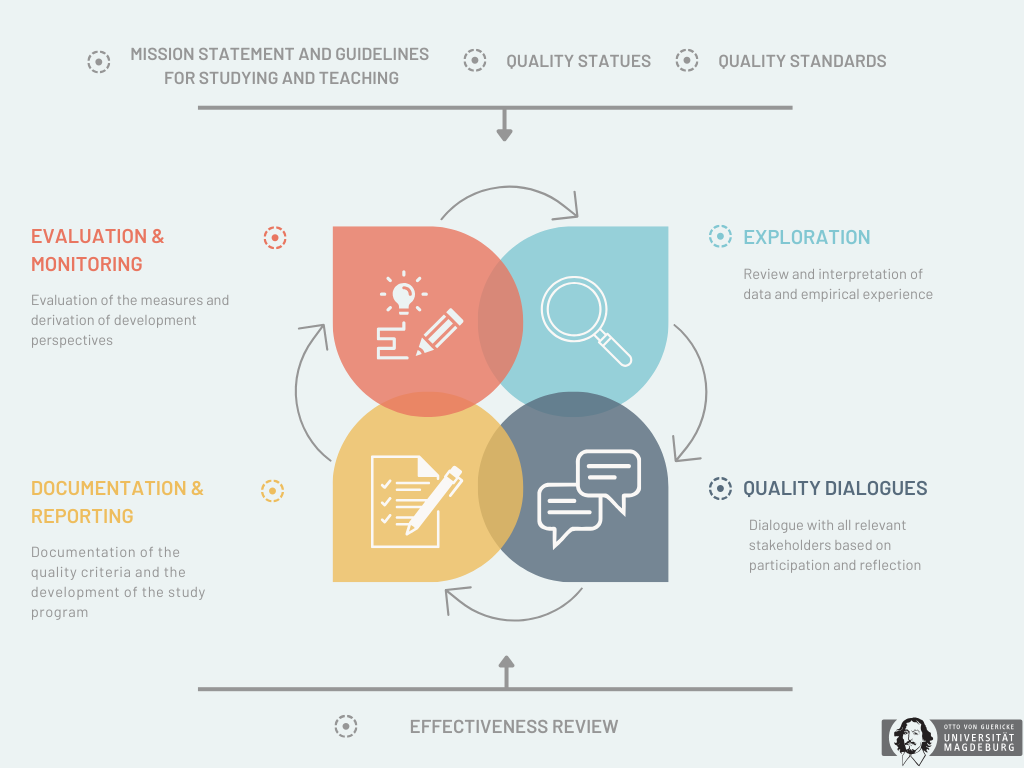Quality cycle
The OVGU has established a continuous and sustainable process of quality assurance and development, taking into account all relevant design aspects and within the framework of its self-image, which is based on the classical understanding of a continuous improvement process in the sense of the PDCA cycle and provides for the constant examination of the conditional factors of studying and teaching.
The quality development cycle for studying and teaching provides for contact with the relevant stakeholders within a specified cycle on the basis of data (through surveys and evaluations) and assessments of those involved in studying and teaching as well as with the help of the quality criteria in course discussions and conferences. In this way, the communication culture, especially in the OVGU faculties, and the self-responsibility for sustainable and continuous quality assurance and development are used. A differentiated documentation and reporting system serves not only as a basis for the further development of study programs, but also as a basis for external communication and information to ministries and the interested public. The process is divided into four phases:
- Exploration (Plan), the review and interpretation of data
- Quality dialogs (Do), the discussion with all relevant stakeholders aimed at participation, reflection and dialog
- Documentation and reporting (Check), within the university and to the public
- Further development of study programs (Act), the derivation and implementation of measures to ensure and develop quality in studies and teaching and evaluation of the same

